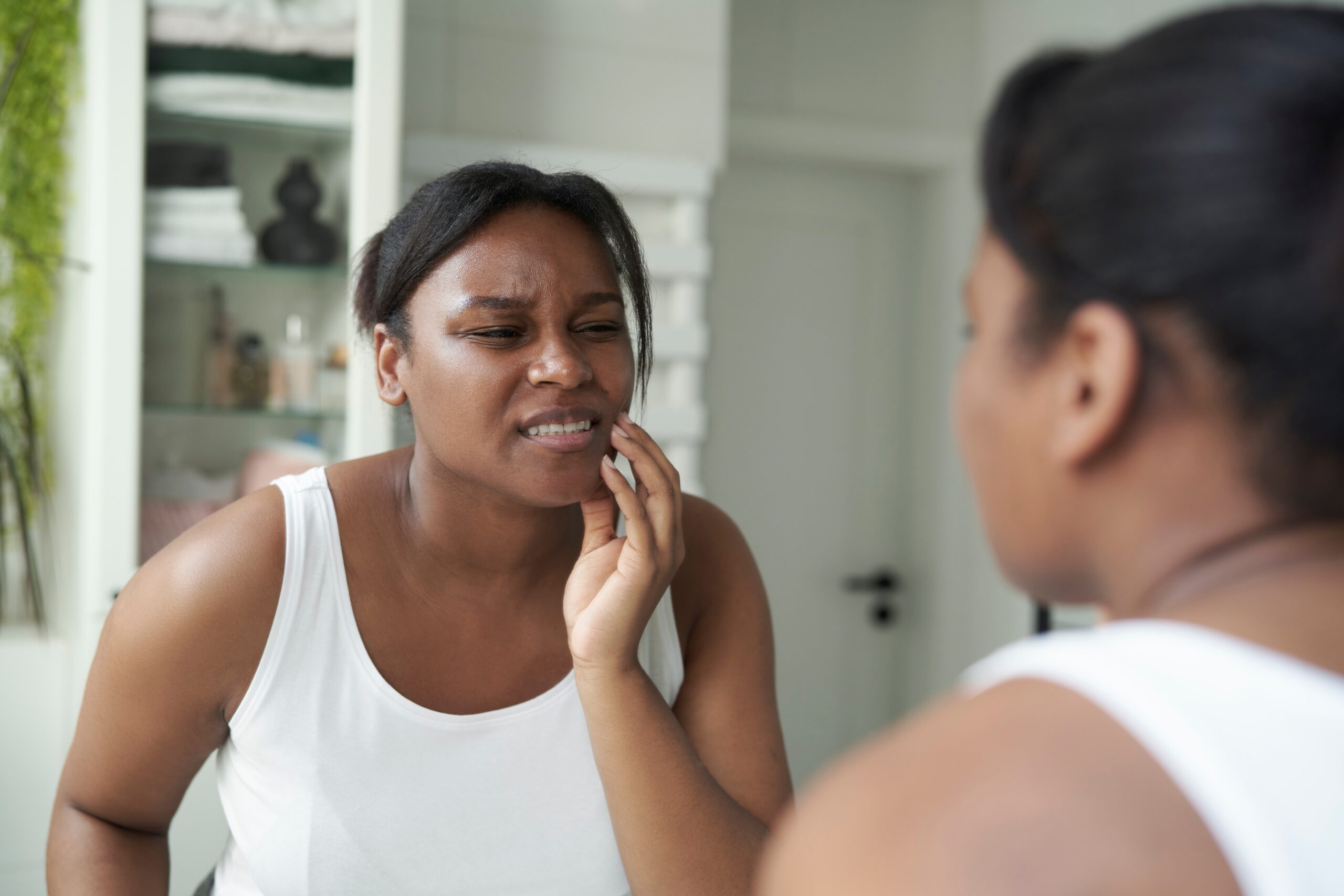 Waking up with a sore jaw, a dull headache, or sensitive teeth can be a frustrating way to start your day. For many people, these are signs of bruxism—the medical term for unconsciously clenching or grinding your teeth, often during sleep. While it might seem like a minor habit, chronic bruxism can lead to significant discomfort and contribute to a more complex condition known as temporomandibular joint disorder (TMD).
Waking up with a sore jaw, a dull headache, or sensitive teeth can be a frustrating way to start your day. For many people, these are signs of bruxism—the medical term for unconsciously clenching or grinding your teeth, often during sleep. While it might seem like a minor habit, chronic bruxism can lead to significant discomfort and contribute to a more complex condition known as temporomandibular joint disorder (TMD).
At Decatur Smiles, we understand how jaw pain can affect your quality of life. Our compassionate team is here to help you find answers and relief.
What is Bruxism? Signs and Symptoms
Bruxism involves forcefully sliding your teeth back and forth or clamping your jaw shut. Because it often happens while you sleep, you may not even know you’re doing it. However, the signs are hard to ignore.
Common symptoms include:
- Morning headaches or jaw soreness
- Worn down, flattened, or fractured teeth
- Increased tooth sensitivity
- Chipped enamel
- Indentations on the side of your tongue (scalloped tongue)
- A clicking or popping sound in your jaw
- Difficulty opening your mouth wide
The Link Between Teeth Grinding and TMJ Pain
Your temporomandibular joint (TMJ) is the hinge connecting your jaw to your skull. It’s what allows you to talk, chew, and yawn. When you constantly grind or clench, the immense pressure puts this delicate joint and the surrounding muscles under severe strain.
Over time, this can aggravate the TMJ, leading to TMD. The persistent muscle fatigue and inflammation can cause chronic facial pain, changes in your bite, and even lockjaw. Addressing bruxism is a critical step in protecting your TMJ and finding lasting comfort.
Proven Relief for Bruxism and TMJ Discomfort
Finding the right solution starts with a thorough evaluation. At Decatur Smiles, Dr. Stephanie Teichmiller brings a wealth of expertise to every patient. With extensive post-graduate training in TMJ, Cosmetic Dentistry, and Implants, she is exceptionally skilled at diagnosing the root cause of your pain and creating a personalized treatment plan.
We offer several modern, effective options that may help reduce your symptoms:
- Custom Night Guards: A professionally fitted oral appliance creates a protective barrier between your upper and lower teeth, absorbing the force of grinding and allowing your jaw muscles to relax.
- Bite Assessment: Dr. Teichmiller can evaluate how your teeth come together. Minor adjustments, known as occlusal adjustments, can sometimes help distribute pressure more evenly across your bite.
- Restorative Dentistry: For teeth already damaged by grinding, we can rebuild their structure with crowns or other restorations to improve function and aesthetics.
- Lifestyle and Home Care: We often recommend simple changes like stress reduction techniques, gentle jaw stretches, applying heat or ice packs, and avoiding chewing gum or excessive caffeine.
In some cases, Botox® may be suggested to help relax overactive jaw muscles, and referrals to physical therapists can provide additional support.
Your Partners in Health in Decatur, AL
You don’t have to live with jaw pain. The dedicated team at Decatur Smiles is committed to providing compassionate, personalized care to our neighbors in Decatur, Hartselle, and Moulton. Dr. Teichmiller and our staff will listen to your concerns and work with you to find a solution that fits your needs.
If you are experiencing symptoms of bruxism or TMJ pain, take the first step toward relief. Contact Decatur Smiles today to schedule your consultation and discover how we can help you feel better.
Contact Decatur Smiles:
256-350-5820
Location (Tap to open in Google Maps):
1316 Somerville Rd SE Ste 2
Decatur, Alabama
35601

